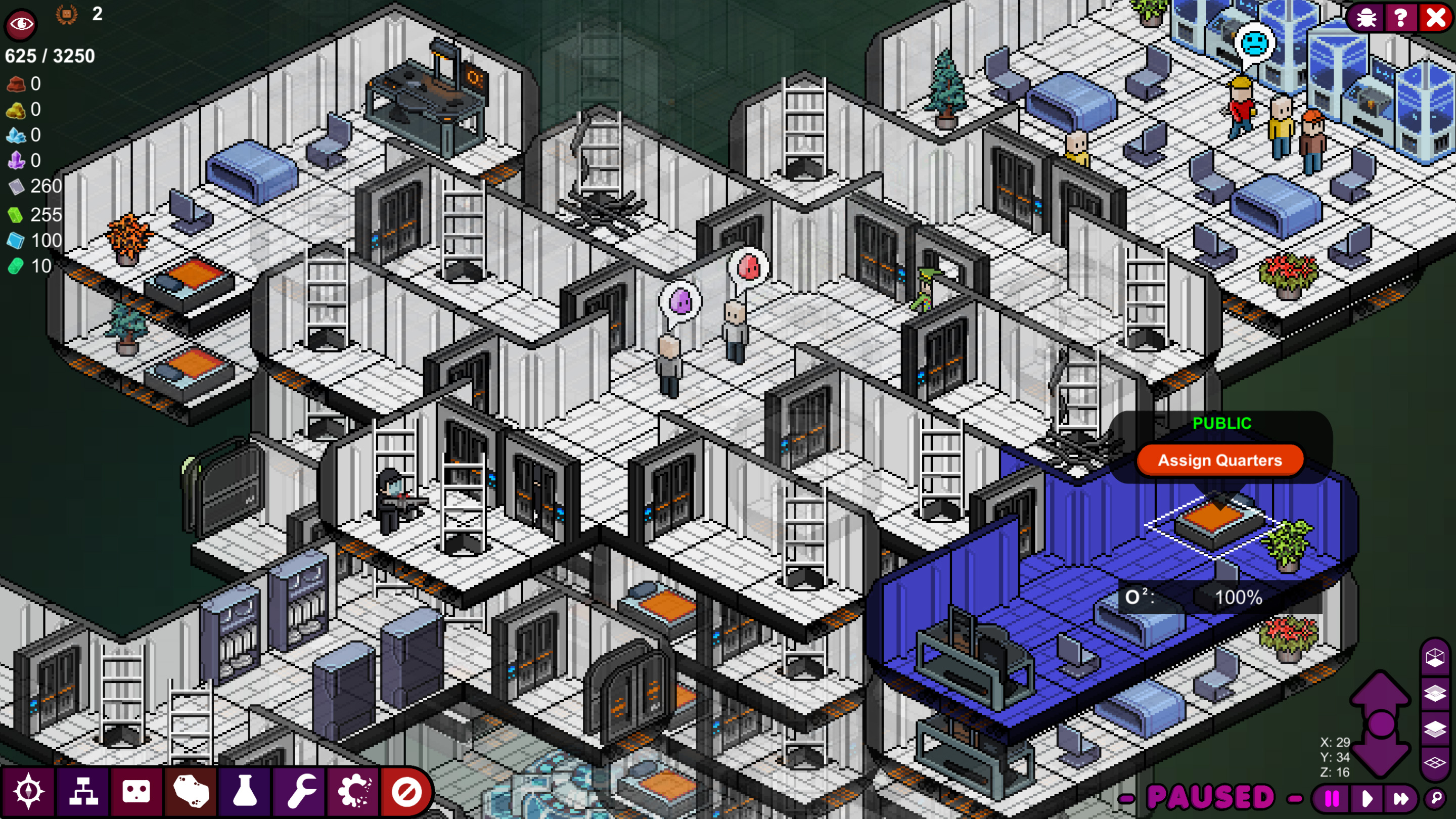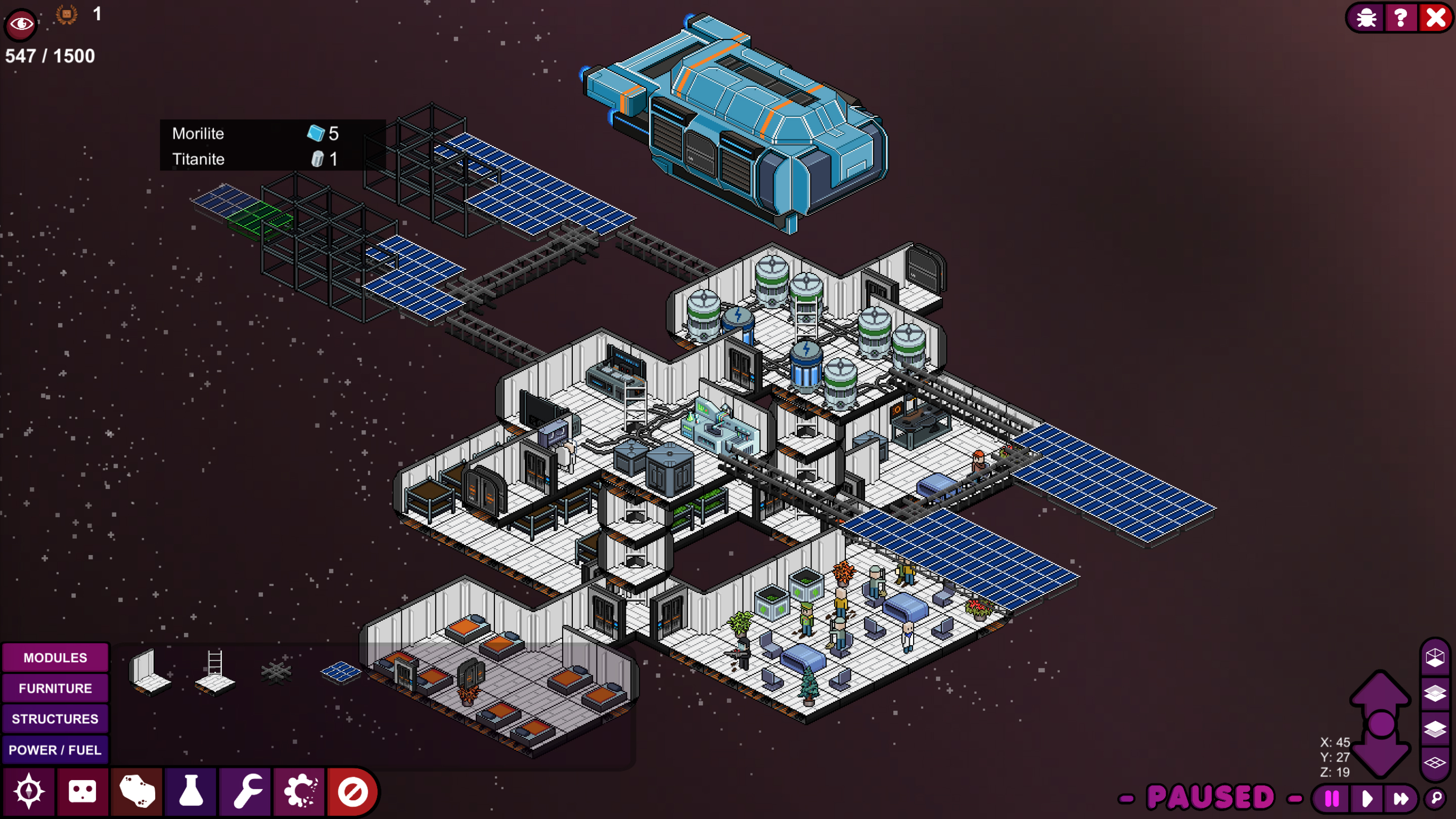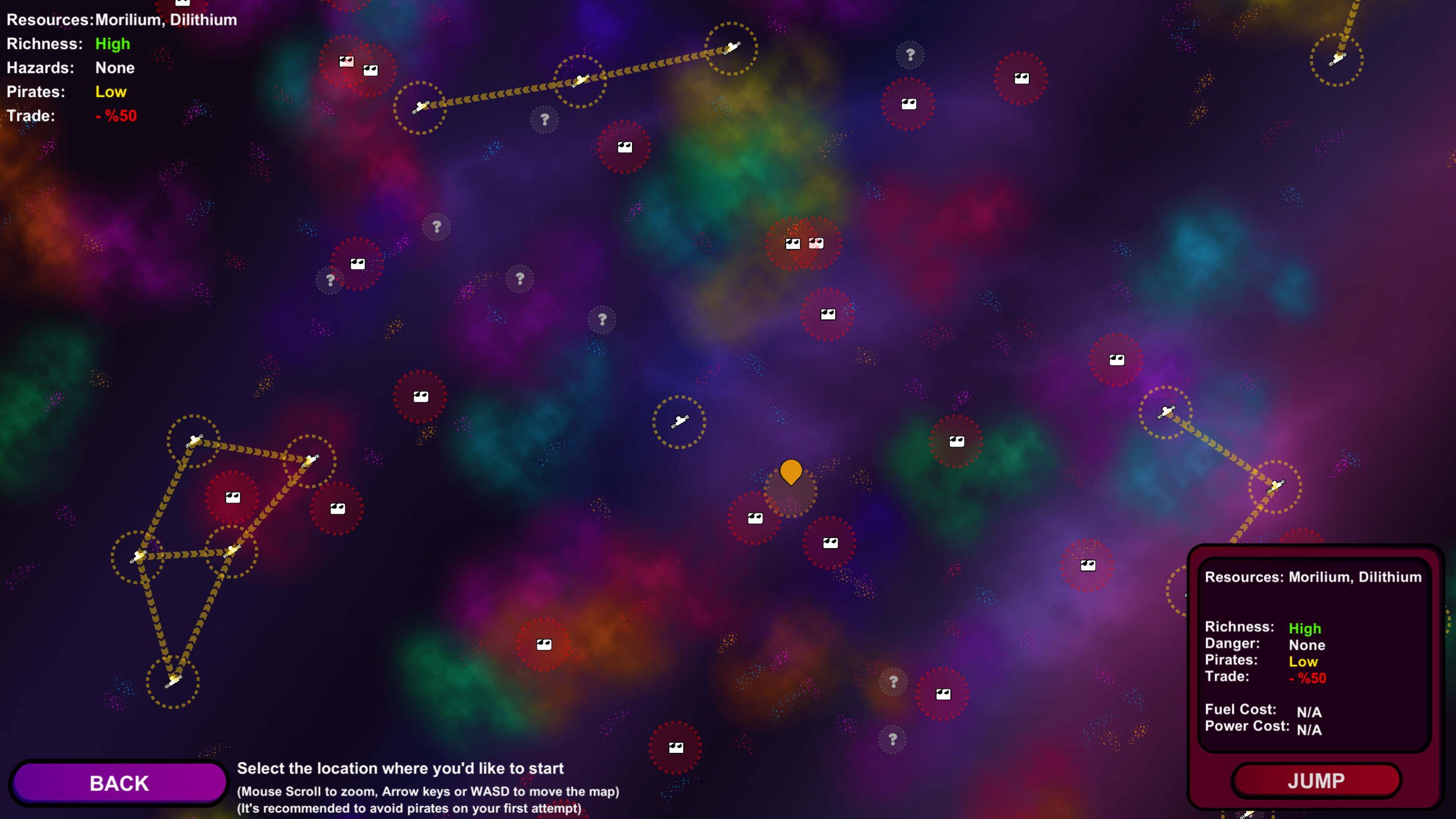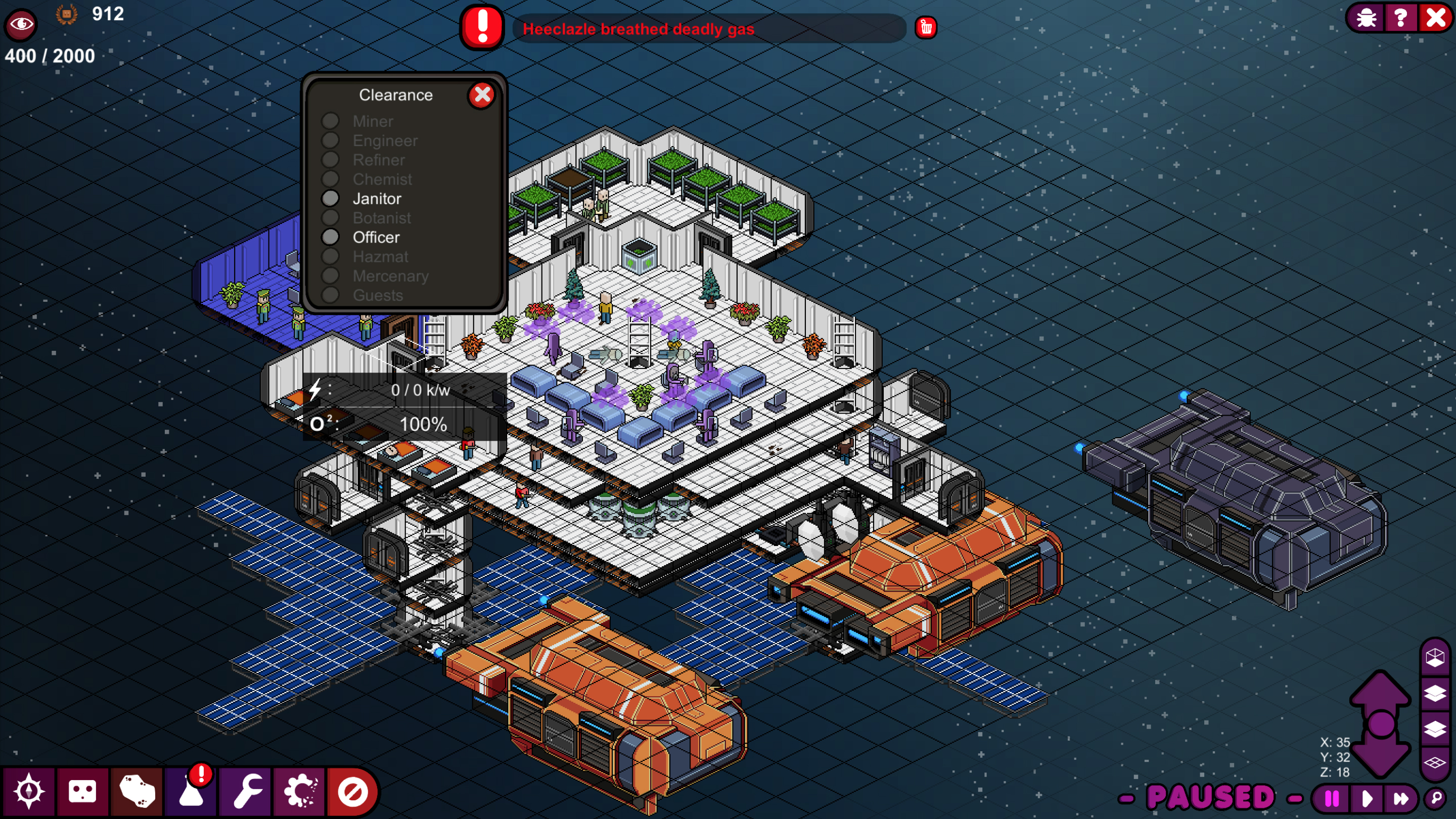This new publisher is going all-in on moddable games
Modularity is the new project from ModDB, and the first highly moddable game they're backing is Meeple Station.

ModDB has been around since 2002, and it's hard to remember where we got mods from before then. Websites grew up around specific popular games, like The Morrowind Chronicles (the site that later evolved into Nexus Mods), but how did every computer at our LAN parties in the old days have Ninja Quake installed on them? Which hero was responsible for that and how did they find it? There was definitely an aura of underground knowledge around mods, especially in the late '90s when you could fire up a Doom .wad with Transformers in it and blow some kid's mind.
Scott Reismanis, the creator of ModDB who traces his passion for them back to the War In Europe mod for Half-Life, recalls the era when he founded the site. "Google was around," he says, "but AltaVista I think was the dominant search engine and people forget how hard it was to find information. It was scattered across hundreds of sites. All we did was go, 'IMDB's a cool site, DeviantArt's a cool site', so we brought those together to create a mod database. And that's where we went to make it easier for us to discover mods to play at our LANs with friends."
We very much want to create an alternative to Steam Workshop
Scott Reismanis
17 years later, ModDB hosts thousands of mods and Reismanis and the staff he's built up around the site and its spin-off sites are launching something new. Modularity is a publishing label with two focuses: indie games that are heavily moddable, and games made by modders who want to turn pro. Their launch game, Meeple Station, is a perfect example of the first kind of project—a space station sim that looks a bit RimWorld and a bit Spacebase DF-9, which has scope for modders to create both cosmetic additions like new furniture pieces as well as more drastic overhauls.
Mod fashion
Finding mods for Meeple Station will be easier than using AltaVista thanks to mod.io, a tool Reismanis launched last year to help developers get mod support into their games and also help players find them. "We very much want to create an alternative to Steam Workshop," he explains. "Developers want to bring their modding community to other platforms and stores and as part of that we realized that integrating mod support into a game, it's not necessarily a straightforward process."
Though indie studio Vox Games' Kickstarter for Meeple Station failed, an early version released on itch.io has done well (it's number three on the site's top sellers list at the time of writing), and Reismanis and his team have spent the last four months assisting with it. Together they created a Unity plugin that made mod support much simpler. "We think that's really going to shake up how Unity games are modded and if that's successful then we want to bring it to Unreal and other engines [...] Mod.io allowed them to drop in a mod solution for the UI, did all the other work, and it took only a couple of hours with the Unity plugin that we've got now. It's been really helpful, they've helped us develop that out and we've helped them with an easy drop-in solution."

The idea for Modularity actually came from the developers at Vox Games. "It came about because Meeple Station was happy with the help we provided them and suggested this. At the time we were focused on their game and mod.io and they're like, 'It makes sense to formalize something to give the same help you've given us to other people'."
We definitely do have no intention of impacting free mods.
Scott Reismanis
And that's what Modularity aims to do. But describing exactly what they want to be didn't come easy. "We don't want to just be another publisher because there's tons of really good indie publishers," says Reismanis. "We wouldn't actually call ourselves a publisher if there was a better word to use." After casting aside 'investor', 'fund', and 'label' they decided publisher would have to be it. "We're not a traditional partner publisher like Devolver Digital, TinyBuild and all these other ones, because of our very narrow focus. We're never going to be a volume publisher—I don't imagine we're just taking on lots of games. We're gonna take on games that we have the capability and capacity to represent well. The next 12 months for us, we'd probably like to start building up a roadmap with an aim of I'd say two to three games a year. We'll ramp up accordingly based on what's happening so that's by no means a hard limit, but we don't want to bite off more than we can chew."
Keep up to date with the most important stories and the best deals, as picked by the PC Gamer team.
And what kind of games can we expect from Modularity? "Games that have mod support, that's probably our first and foremost priority because we feel the engagement modding brings leads to successful games and games that last a long time and really resonate with their users."

Talking about modding it's impossible to avoid the divisive subject of paid mods. Would Modularity publish a game that charged for mods? "We just want to provide advice and recommendations based on what we see and the general industry and consumers will accept," says Reismanis. "But if a developer believes it's going to be better for their game's players and they've got really strong reasons for wanting to explore the possibility then, yeah, we'll support them and we'll go into bat for them. But it's a very complicated issue. I think that exploring paid mods with an established game that has these free communities is definitely what you want to avoid."
One of the criticisms of paid mods as a concept is that it could potentially draw modders away, diminishing the existing scene existing around free mods. Reismanis sees modders already moving away, however, because of how many of them move on to more traditional game development. "If anything I think that we are hopefully gonna help modders stay truer to their vision, what they tried to create through a mod by providing them assistance instead of them immediately going into the indie developer route and creating a completely different game using the knowledge they picked up as a modder. I like to think that we're helping in that regard. We definitely do have no intention of impacting free mods."
And while mod.io was explicitly created to provide an alternative to the Steam Workshop for in-game, one-click mod distribution, there's no plan for Modularity to compete with Steam as a storefront. Their games will be available through existing distributors, or direct. Meeple Station will launch on Steam. "We're definitely not going to make our own storefront. There's been a lot of really good movement in that area lately from some pretty big companies, I think you'd be crazy to consider that."

I'm here with all of my meeple
There's one topic that's more controversial than paid mods or competitors to Steam, however, and that's the correct pluralization of the word 'meeple'. OK, maybe that's only true if you're the kind of person who posts on Boardgamegeek.com, but still, this is something that starts arguments among a certain crowd. The word 'meeple', which describes the playing pieces used in board games like Carcassonne, is an abbreviation of 'my people'. The cute space people who totter around trying not to asphyxiate in Meeple Station are based on these pawns you usually see in European board games, which are played by the kind of people who argue about correct pluralization of words.
"It's funny because there was a really big debate about this that the team had," says Reismanis, "there's actually a huge conversation about that. In the footer of the website of Meeple Station I had 'no meeples were harmed in the making of this website' and they told me to change it. 'No meeple were harmed in the making of this website'."
Meeple definitely will be harmed in the playing of Meeple Station, though. It's the kind of sim where you assign orders to the crew, telling them to mine asteroids or build airlocks or clean the floor, and then hope they accomplish those things without starving to death or depressurizing or being hit by meteors or dying in some other horrible way.
It's a real risk. Reismanis gives an example. "In the trailer actually at about the minute mark there's a scene where pirates are boarding the station and the captain, the meeple captain, shoots two pirates then just turns and starts a conversation with another meeple, then gets shot in the back. They're not the most intelligent spacefarers in the world."
It's a game that's about building, and trading, and surviving in space, and it's easy to imagine new skins for the characters and new items of furniture being added in, maybe more jobs so you can go full Space Station 13 with it, but what does Modularity want to see modders do with their first published game? "We want to see total conversions," Reismanis says. "We want to have it to the point where—the game is not a tower defence title at all, it should never have tower defence in it, but we want to get modding to the point where you could build tower defence into it if you wanted to. It'd be a silly thing to do, but that's the goal. If you enable something to that state then really modders can do anything."

Jody's first computer was a Commodore 64, so he remembers having to use a code wheel to play Pool of Radiance. A former music journalist who interviewed everyone from Giorgio Moroder to Trent Reznor, Jody also co-hosted Australia's first radio show about videogames, Zed Games. He's written for Rock Paper Shotgun, The Big Issue, GamesRadar, Zam, Glixel, Five Out of Ten Magazine, and Playboy.com, whose cheques with the bunny logo made for fun conversations at the bank. Jody's first article for PC Gamer was about the audio of Alien Isolation, published in 2015, and since then he's written about why Silent Hill belongs on PC, why Recettear: An Item Shop's Tale is the best fantasy shopkeeper tycoon game, and how weird Lost Ark can get. Jody edited PC Gamer Indie from 2017 to 2018, and he eventually lived up to his promise to play every Warhammer videogame.

